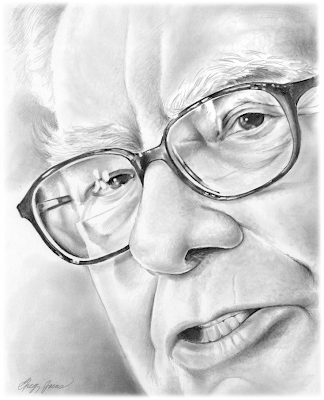Monday, May 21, 2012
Warren Buffett
Saturday, October 22, 2011
Chapin Famous Cousins
I have just started tracking it down, but here are a few:
Hannah Chapin descendants include:
Pres. Grover Cleveland and Canada PM Richard Bennett
Catherine Chapin's line includes:
Harriet Beecher-Stowe, abolitionist John Brown & Noah Webster, Clint Eastwood and Hugh Hefner
Japhet includes:
Financier JP Morgan, Artist James Chapin, Singer Harry Chapin and the rest of their musically talented family.
Henry Chapin's line includes:
Spencer Tracy
Josiah Chapin's line includes:
Sec of War Alphonso Taft and son President William Howard Taft.
William Howard Taft is my 3rd cousin 3x removed.
That's really close... our older generation of my relations
received books from the Taft Presidential library.
Monday, September 12, 2011
Elvis

Elvis Aaron Presley is my 10th cousin once removed.
Janet Kaye (Chapin) Joens (1940)
your mother
Lyman C. Chapin (1908)
her father
William Densmore Chapin (1869)
his father
Lyman Chapin (1835)
his father→
John Chapin (1790)
his father
Jacob Chapin (1762)
his father
John Chapin, Jr. (1730)
his father
John Chapin, Sr. (1698)
his father
Bethiah Thurston
his mother
Mary Wood, twin
her mother
Mary Pidge
her mother
Capt. Isaac B. Williams, Sr. (1638-1708)
her brother
Hannah Elizabeth Williams
his daughter
Ann Elizabeth Jett
her daughter
Mary Tapp
her daughter
Moses Tapp
her son
Elizabeth Gideon
his daughter
Lydia Wallace
her daughter
John Henry Wallace
her son
Jessie D. McDowell Presley
his son
Vernon Elvis Presley
his son
Elvis Aaron Presley
his son
Financier JP Morgan
Some of the information about cousin JP Morgan are not necessarily written in glowing reviews. I saw a documentary recently that portrayed him as a devil when dealing with famed electrical engineer and inventor Nikola Tesla. Other biographies put him in the category of one of the great robber barons of the 19th century. A time at the booming of the industrial revolution when there were seemingly no limits to corporate greed and expansion.
John Pierpont Morgan (April 17, 1837 – March 31, 1913) was an American financier, banker and art collector who dominated corporate finance and industrial consolidation during his time. In 1892 Morgan arranged the merger of Edison General Electric and Thomson-Houston Electric Company to form General Electric. After financing the creation of the Federal Steel Company he merged in 1901 with the Carnegie Steel Company and several other steel and iron businesses, including Consolidated Steel and Wire Company owned by William Edenborn, to form the United States Steel Corporation.
Morgan died in Rome, Italy, in 1913 at the age of 75, leaving his fortune and business to his son, John Pierpont "Jack" Morgan, Jr., and bequeathing his mansion and large book collections to The Morgan Library & Museum in New York.
At the height of Morgan's career during the early 1900s, he and his partners had financial investments in many large corporations and were accused by critics of controlling the nation's high finance. He directed the banking coalition that stopped the Panic of 1907. He was the leading financier of the Progressive Era, and his dedication to efficiency and modernization helped transform American business. Morgan redefined conservatism in terms of financial prowess coupled with strong commitments to religion and high culture.[1]

Monday, August 15, 2011
Cousin Bing Crosby (1903-1977) American Singer
Wednesday, August 10, 2011
US President Grover Cleveland
Grover Cleveland, 22nd and 24th President of the USA
Rev. Richard Falley Cleveland
his father
Margaret Cleveland
his mother
Margaret Falley
her mother
Samuel Hitchcock
her father
John Hitchcock, Jr.
his father
Hannah Chapin (1644)
his mother
Deacon Samuel Chapin
her father
Stephen Grover Cleveland (March 18, 1837 – June 24, 1908) was the 22nd and 24th President of the United States. Cleveland is the only president to serve two non-consecutive terms (1885–1889 and 1893–1897) and therefore is the only individual to be counted twice in the numbering of the presidents. He was the winner of the popular vote for president three times—in 1884, 1888, and 1892—and was the only Democrat elected to the presidency in the era of Republican political domination that lasted from 1860 to 1912.
Cleveland was the leader of the pro-business Bourbon Democrats who opposed high tariffs, Free Silver, inflation, imperialism and subsidies to business, farmers or veterans. His battles for political reform and fiscal conservatism made him an icon for American conservatives.[1] Cleveland won praise for his honesty, independence, integrity, and commitment to the principles of classical liberalism.[2] As a reformer he worked indefatigably against political corruption, patronage, and bossism. His second term coincided with the Panic of 1893, a severe national depression that Cleveland was unable to reverse. It ruined his Democratic party, opening the way for Republican landslides in 1894 and 1896, and for the agrarian and silverite seizure of his Democratic party in 1896. The result was a political realignment that ended the Third Party System and launched the Fourth Party System and the Progressive Era.[3]
Cleveland took strong positions and in turn took heavy criticism. His intervention in the Pullman Strike of 1894 to keep the railroads moving angered labor unions nationwide and angered the party in Illinois; his support of the gold standard and opposition to Free Silver alienated the agrarian wing of the Democratic Party.[4] Furthermore, critics complained that he had little imagination and seemed overwhelmed by the nation's economic disasters—depressions and strikes—in his second term.[4] Even so, his reputation for honesty and good character survived the troubles of his second term. Biographer Allan Nevins wrote, "in Grover Cleveland the greatness lies in typical rather than unusual qualities. He had no endowments that thousands of men do not have. He possessed honesty, courage, firmness, independence, and common sense. But he possessed them to a degree other men do not."[5] Source: Wikipedia





